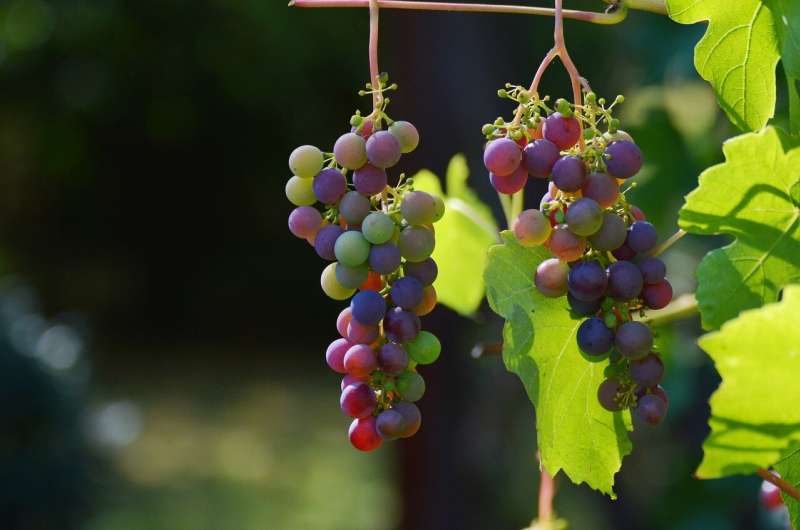Discovery of non-conventional peptides in Vitis vinifera L. through peptidogenomics

Although some researchers have identified peptides through multiple methods, as in Arabidopsis and maize, the biological functions of most non-conventional peptides (NCPs) remain to be demonstrated. NCPs function by modulating larger regulatory proteins, and their functions can therefore be predicted from the proteins on which they act. In addition, the functions of NCPs can also be predicted by genome-wide association studies, such as the combination of NCPs with quantitative trait locus (QTL) or domestication analysis. Studies on NCPs of grape berries are scarce, and only a few studies on peptides encoded by primary miRNA sequences have been reported.
Recently, scientists from Henan University of Science and Technology identified 188 and 2,021 non-redundant peptides from the Arabidopsis thaliana and Vitis vinifera protein database at Ensembl/URGI and an individualized peptidogenomic database, respectively. They then analyzed the chromosome distributions of NCPs and CPs and the origins of NCPs. The NCPs were widespread in the grape genome, and the distribution patterns of NCPs and CPs on the grape chromosomes differed.
To analyze the functions of NCPs, the researchers compared the locations of NCPs with those of QTLs, LTR retrotransposons, and domestication selection regions. About 94% of the NCPs were located in QTLs, including those associated with development, intrinsic quality, disease resistance, and fruit quality. They also investigated whether the NCPs showed developmental specificity. This large-scale identification of NCPs provides important information that deepens our understanding of these small molecules in grapes.
“Our study is the first to extensively identify NCPs in grapes. It demonstrated that there was a large amount of translation in the genome,” Prof. Guo said. These results lay a foundation for studying the functions of NCPs and also provide a reference for the discovery of new functional genes in grapes.
The research was published in Horticulture Research.
Mao-Song Pei et al, Large-scale discovery of non-conventional peptides in grape (Vitis vinifera L.) through peptidogenomics, Horticulture Research (2022). DOI: 10.1093/hr/uhac023
Provided by
Nanjing Agricultural University The Academy of Science
Citation:
Discovery of non-conventional peptides in Vitis vinifera L. through peptidogenomics (2022, August 9)
retrieved 9 August 2022
from https://phys.org/news/2022-08-discovery-non-conventional-peptides-vitis-vinifera.html
This document is subject to copyright. Apart from any fair dealing for the purpose of private study or research, no
part may be reproduced without the written permission. The content is provided for information purposes only.
For all the latest Science News Click Here
For the latest news and updates, follow us on Google News.

